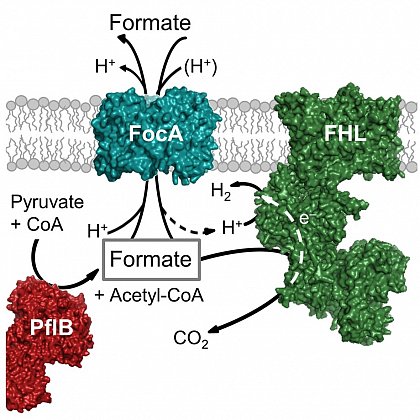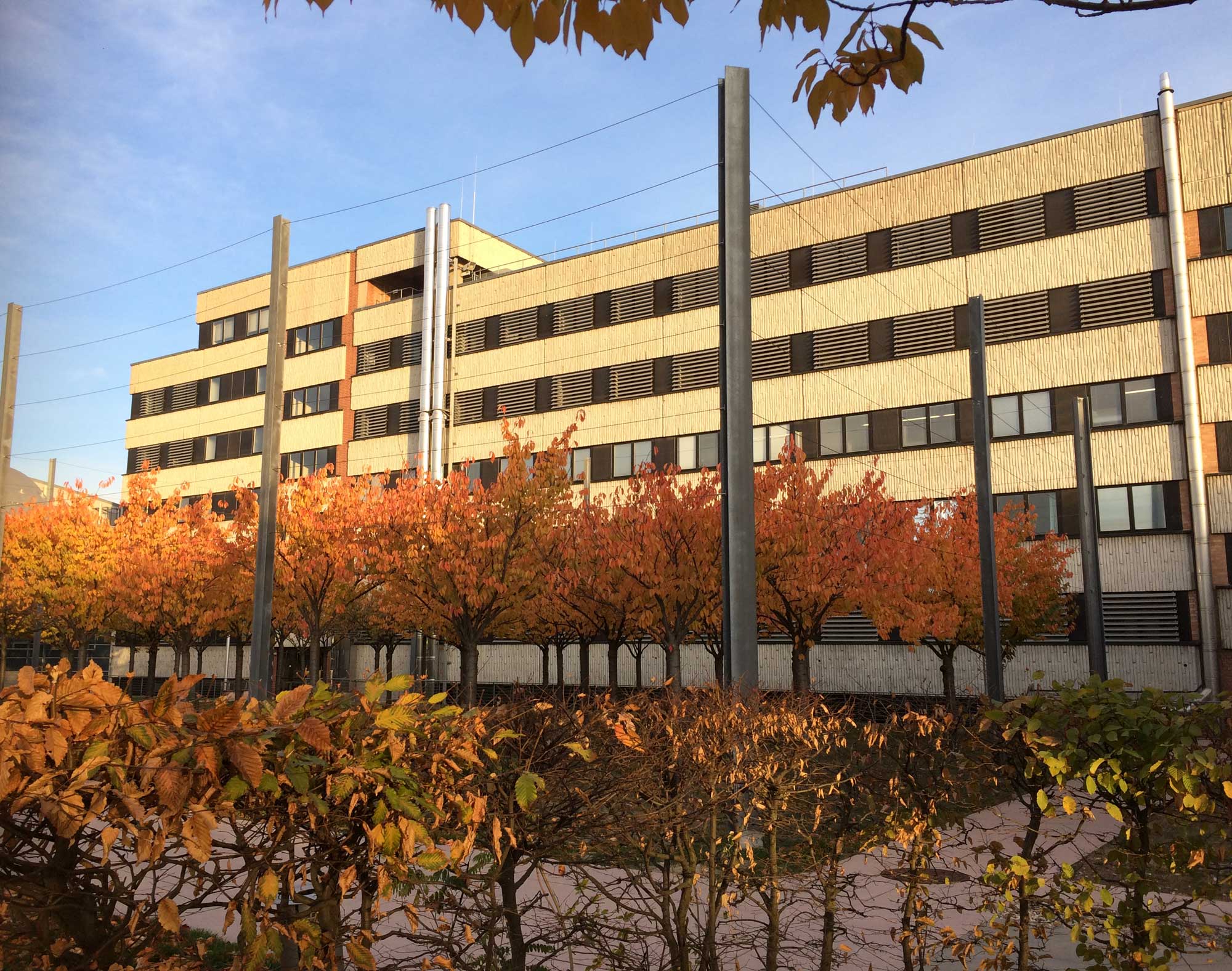Microbial formate metabolism
Formate production is a means by which many anaerobic microorganisms divest themselves of excessive reducing equivalents. However, with a standard redox potential (Eh) of roughly -418 mV, formate is also a valuable source of energy and reducing equivalents. Intracellular accumulation of formate can lead to uncoupling of the membrane potential and therefore organisms that produce or consume formate require a means of controlling translocation of this key organic acid. We study the archetype of the FNT (formate and nitrite transporter) superfamily of pentameric membrane channel proteins, FocA, in E. coli. FNT proteins transport small anions, such as formate, nitrite or hydrosulfide, into and/or out of cells of uni-cellular microorganisms. They likely represent an evolutionarily ancient form of transport proteins. FocA allows anaerobically growing E. coli to export or import formate and both the cytoplasmic pyruvate formate-lyase (PflB) enzyme and the membrane-associated H2- and CO2-producing formate hydrogenlyase (FHL) complex have important functions in controlling the directionality of formate translocation by FocA. Our research focuses on how PflB and FHL influence bi-directional formate transport by FocA and how these transport processes impact the physiology and energetics of the fermenting E. coli cell.

Schematic representation of formate/formic acid translocation across the cytoplasmic membrane by FocA. Intracellular formate levels are controlled by FocA (blue), FHL complex (green) and PflB (red).




